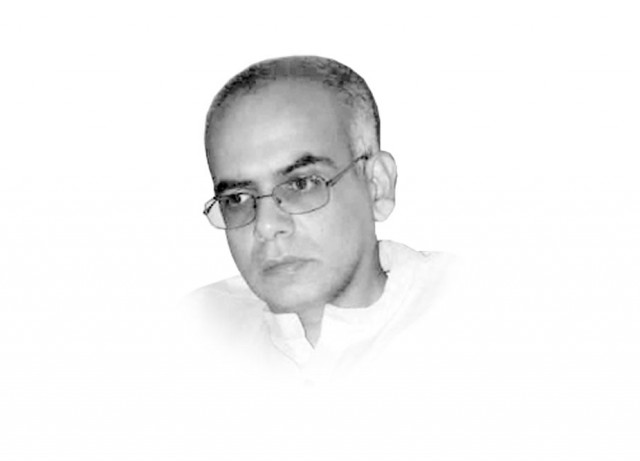Buckle up for another bumpy ride
Relations between the current US administration and Pakistan are becoming turbulent

The writer is a development anthropologist. He teaches at George Washington University
The US allotted $900m to Pakistan under the CSF for 2016, out of which $550m had already been reimbursed. At the tail end of the previous administration, $300m were withheld. Now, the new US secretary of defence, during a US Congress defence committee hearing, has also concluded that Pakistan hadn’t made enough efforts against militants in the region. Without this endorsement, Pakistan can’t receive the leftover amount of $50m either.
Our ambassador to the US has tried to argue that money allocated under the CSF isn’t assistance but a reimbursement of expenses incurred by Pakistan towards achieving common objectives in the fight against terrorism. Yet, the US maintains that Pakistan must stop ‘acting selectively’ against the Taliban.
In the post-9/11 context, Pakistan became the largest recipient of CSF reimbursements, having received more than $14b since 2002. Pakistan also had to pay a steep human and financial cost during the past decade in becoming embroiled in the Global War On Terror (GWOT). Yet, despite lingering concerns about Pakistan’s overall commitment to GWOT, the release of these funds has become increasingly conditional. Leaving aside the approach and the effectiveness of military operations against militants within the country, the fact remains that Pakistan has launched costly military operations recently.
However, suspicions linger. While announcing its decision to halt release of the pending CSF funds for 2016, a Pentagon spokesman claimed this decision doesn’t mean that the significance of the sacrifices made by the Pakistani military is underappreciated. Conversely, a US Congressman Ted Poe’s description of Pakistan as a “backstabbing nation,” following the decision of the US defence committee meeting, was perhaps an overly crude description.
While the Pentagon has pointed that Pakistan can still receive CSF funds for 2017, the decision to halt CSF reimbursement for the previous year isn’t good news. It foreshadows a tougher stance against Pakistan, and may set the tone for a more adversarial South Asian strategy, which is currently being formulated by the new White House administration.
Pakistan has rightly advised the US delegation headed by the acting assistant secretary of state this past week to focus on negotiations instead of relying on force to end the conflict in Afghanistan. Yet, there is a strong and persistent lobby within the US, comprising prominent security analysts and think tanks, which keep insisting that Pakistan remains determined to use militancy to further its strategic goals in Afghanistan and Kashmir. The apparent Pakistani reluctance to distance itself from the Haqqani Network is particularly bothersome to the US, as it frustrates its goals of saving face in the region. The US hasn’t been able to convince Pakistan to do more to help stabilise the current Afghanistan government through a transactional relationship, especially as it continues giving more support to India, to counter-balance China.
Pakistan hasn’t been proactive in terms of conveying its strategic imperatives to the international community, including Washington. It is only due to the current political turmoil, and the disqualification of the PM, that we at last have a foreign minister.
A myopic and even more aggressive US approach towards our part of the world may stoke further instability. If, for example, Pakistan’s status as a major non-Nato ally is downgraded, it will sour the Pakistani establishment’s relations with the US for the foreseeable future, and may further complicate the situation in Afghanistan. Irked by increasingly closer US relations with India, and Delhi’s growing leverage in Afghanistan, Pakistan may not only deepen security cooperation with China but also with freshly sanctioned Russia, which in turn would bring more competing agendas and further escalate tensions and violence, in an already troubled part of the world.
Published in The Express Tribune, August 11th, 2017.
Like Opinion & Editorial on Facebook, follow @ETOpEd on Twitter to receive all updates on all our daily pieces.













COMMENTS
Comments are moderated and generally will be posted if they are on-topic and not abusive.
For more information, please see our Comments FAQ